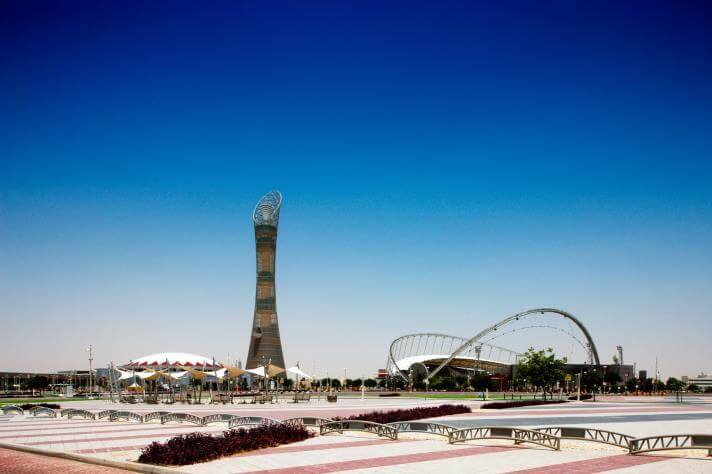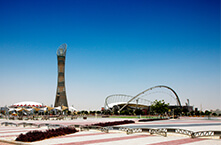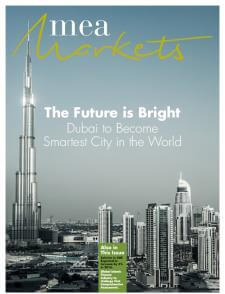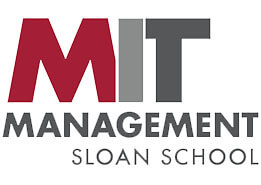
By Laura Warren Partner at Clyde & Co, Doha
Regional Outlook ‘ The Spectre of Increasing Disputes?
The MENA region is already a premier function and event destination globally, with its close proximity to the East and West, and status as a global aviation hub making it an attractive choice.
The UAE and Qatar already have a number of annual sporting, business and cultural events which attract participants and attendees from around the globe. The upcoming FIFA World Cup 2022 and Dubai Expo 2020 will see an unparalleled number of visitors to the region and a number of large scale infrastructure projects and associated developments have been earmarked to showcase the region and provide for this influx.
Large scale, innovative projects coupled with short timeframes for completion carry with them the risk of construction disputes. Against this backdrop we examine the regional outlook for disputes in Qatar and Dubai leading up to these events, and focus on those ways to manage the risk of disputes.
Qatar
The award of the World Cup has fuelled an enormous amount of investment and construction in Qatar. Contracts have been signed for the construction of the twelve stadia, the estimated 21 new hotels to house the 400,000 predicted fans and various other related facilities.
In addition, large infrastructure projects such as IDRIS, the Doha Metro, the orbital expressways and the New Doha Port are taking shape, in line with the requirements of the Qatar National Vision 2030.
With some new projects nearing completion and as the deadlines of others draw closer, we expect to see a steady increase in construction related disputes, with resolution through the local courts remaining popular but an increasing trend toward resolution through local and international arbitration.
Dubai
World Expos have a legacy of transformative developments and iconic architectural achievements. Examples include the Crystal Palace erected for the 1851 ‘Great Exhibition’ in London and the Eiffel Tower for1889’s World Fair in Paris.
A number of large scale infrastructure and related developments are earmarked to coincide with Expo 2020, including:
- Trade Centre Jebel Ali
- Al Maktoum International Airport expansion
- The Dubai Creek expansion
- Rail infrastructure
- Hospitality and leisure developments
Edging closer to 2020 and 2022 the effects of ‘hard’ deadlines will be felt, and the potential for construction disputes will increase as the timeframes for completion of projects become tighter.
Looking ahead, care will need to be taken to actively plan and manage project delivery. Without it, it is not difficult to forecast the following issues giving rise to disputes:
Scope variations ‘ particularly in respect of design obligations, where important decisions or details are deferred and responsibility for obtaining approvals impacts project delivery
Acceleration ‘ given the ‘hard’ deadlines likely to be associated with a number of projects, we see acceleration of works as being a key point of contention
Defects ‘ the complexity and scale of the projects coupled with ‘hard’ deadlines will see resources stretched giving rise to an increased risk of defective or non-compliant work
Cashflow ‘ mobilisation of sufficient resources, particularly if required to achieve accelerative measures, will require adequate cashflow at all project levels. If not managed properly this could lead to difficulties in terms of payment disputes.
To avoid these disputes, parties will need to carefully define project scope and specific obligations at the outset of projects and ensure there is clarity as to where those obligations sit between the project participants. The risk of scope creep and the passing of design responsibility are all too common across the MENA region. Proactive and rigorous contract administration (on all sides) will also be key to ensure any disputes are avoided, or otherwise addressed, as they arise.
We expect that arbitration will remain the preferred mechanism for formal dispute resolution in construction projects leading up to Expo and the World Cup. Arbitration has several advantages over litigation in the local courts, including the ability of parties to appoint suitably experienced experts to act as arbitrators and given the increased scrutiny on project delivery, both national and international, the confidential nature of the process will also appeal.























